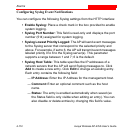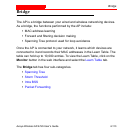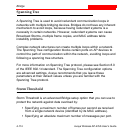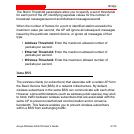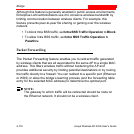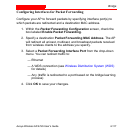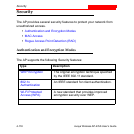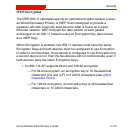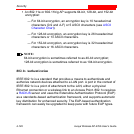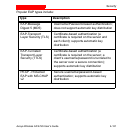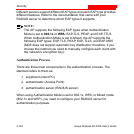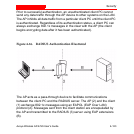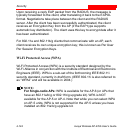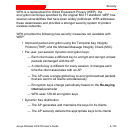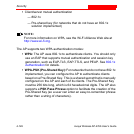
Security
Avaya Wireless AP-4/5/6 User’s Guide 4-119
WEP Encryption
The IEEE 802.11 standards specify an optional encryption feature, known
as Wired Equivalent Privacy or WEP, that is designed to provide a
wireless LAN with a security level equal to what is found on a wired
Ethernet network. WEP encrypts the data portion of each packet
exchanged on an 802.11 network using an Encryption Key (also known
as a WEP Key).
When Encryption is enabled, two 802.11 devices must have the same
Encryption Keys and both devices must be configured to use Encryption
in order to communicate. If one device is configured to use Encryption but
a second device is not, then the two devices will not communicate, even if
both devices have the same Encryption Keys.
• An 802.11b AP supports 64-bit and 128-bit encryption:
— For 64-bit encryption, an encryption key is 10 hexadecimal
characters (0-9 and A-F) or 5 ASCII characters (see ASCII
Character Chart).
— For 128-bit encryption, an encryption key is 26 hexadecimal
characters or 13 ASCII characters.




